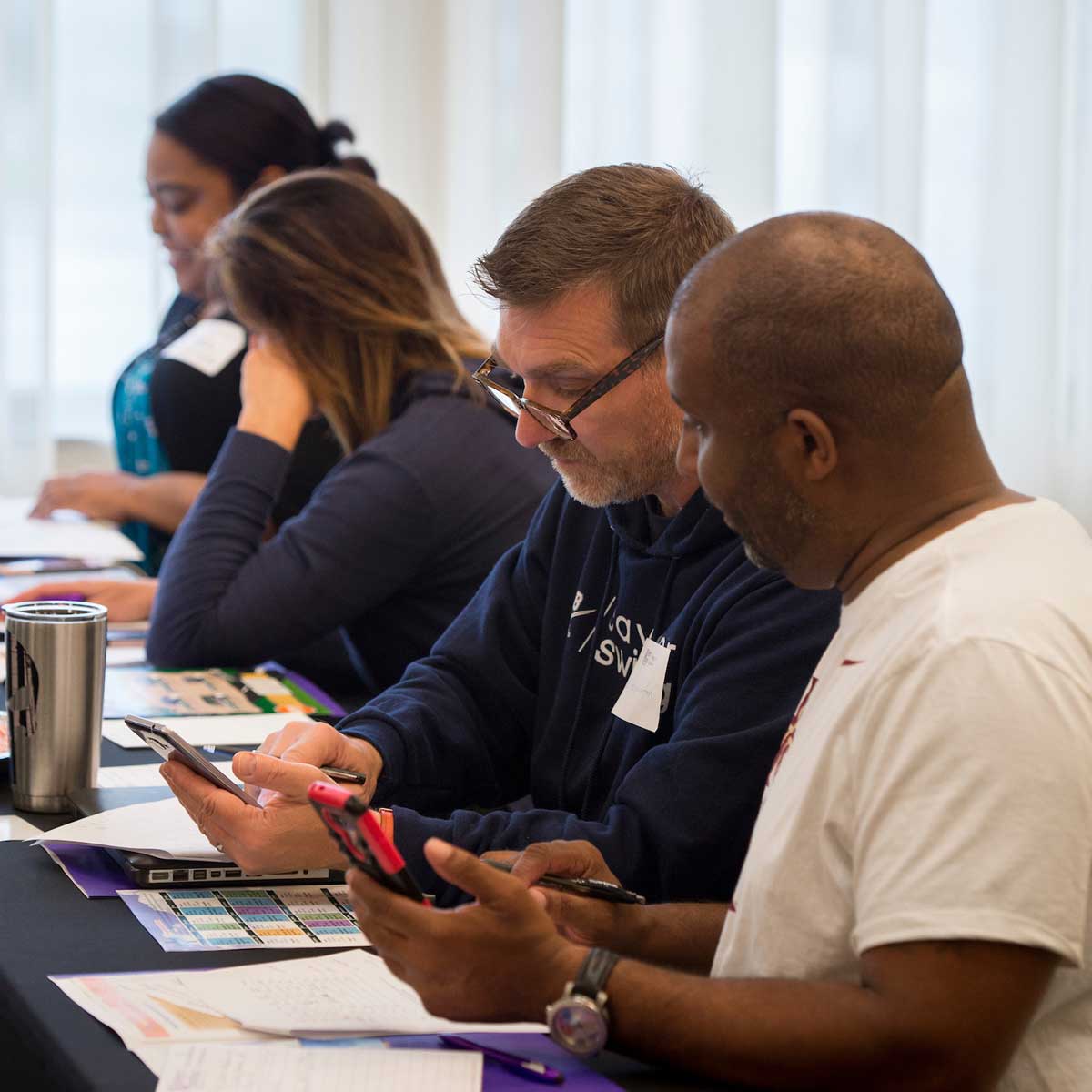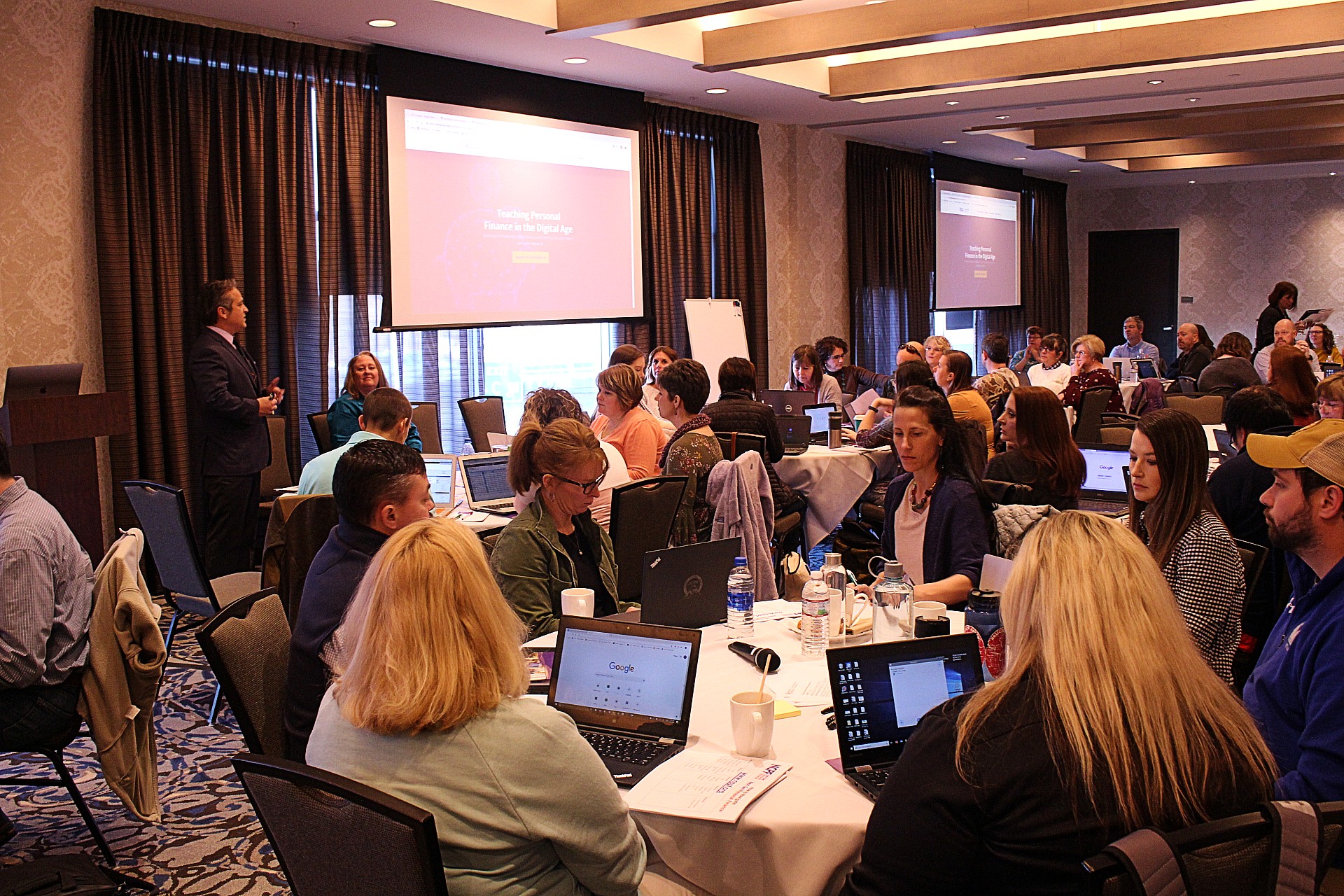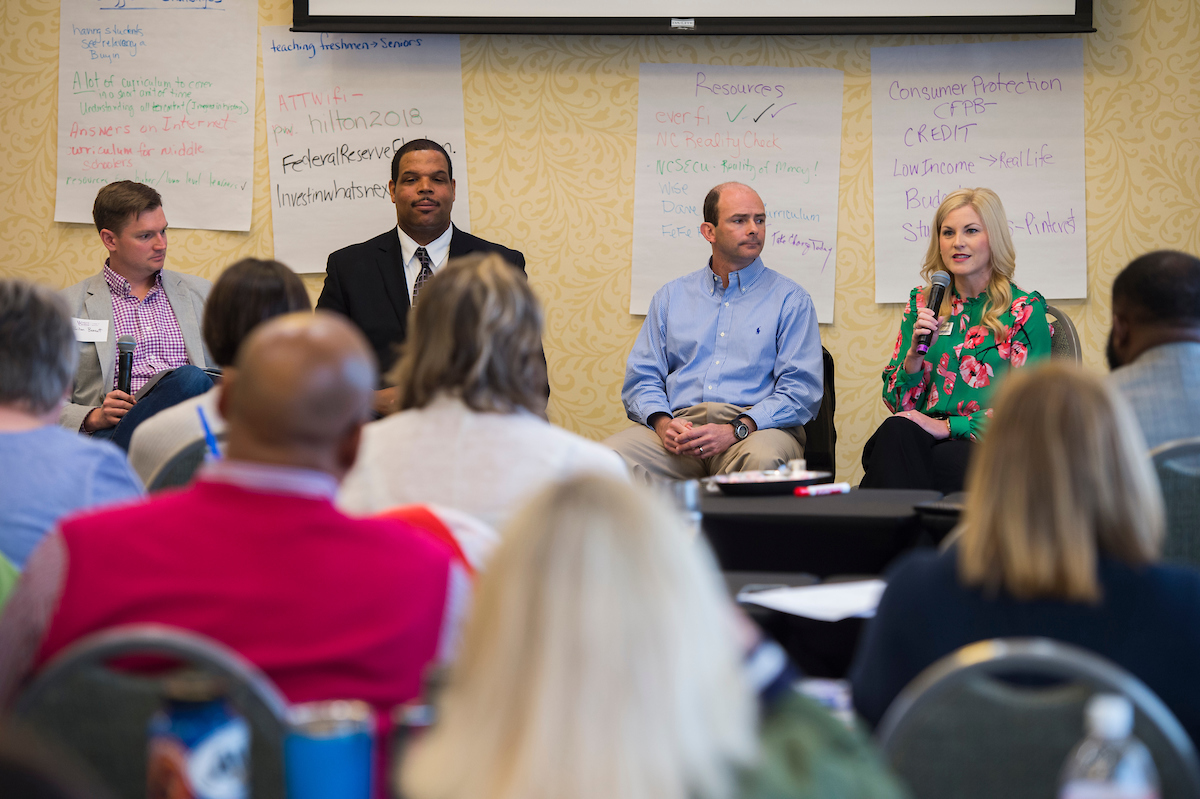Economics Education
Overview of Economics Education Programs
When we launched in 2017, we wanted to make sure we served the students, faculty, and community of Western North Carolina. One way we did that was to expand opportunities and resources for our K-12 educators. As part of our partnership with the North Carolina Council for Economics Education (NCCEE), we held our first joint teacher training workshop for K-12 educators in North Carolina to provide educators the opportunity to deepen their understanding of economics, as well as provide them with free lesson plans, materials, and other resources for use in their classrooms. We’re proud to work with Wells Fargo, the Federal Reserve Bank of Richmond, Champion Credit Union, NCCEE to provide teacher training, and the resources below.
Resources for Teachers
EconEdLink
EconEdLink provides a premier source of over 435 classroom-tested, Internet-based economic and personal finance lesson materials for K-12 teachers and their students.
Federal Reserve Bank of Richmond Educational Resources
Educational resources, and information on field trips and classroom visits from the Federal Reserve Bank of Richmond.
Grokking Econ
Free resources for teaching economics from Dick Brunelle and Steven Reff.
NC JumpStart
Jump$tart Coalition National Partners and affiliated State Coalitions work collaboratively to advance the financial literacy of preschool through college-age youth through public advocacy and awareness, and by promoting and supporting effectiveness in financial education.
HandsOnBanking
An online learning center that offers resources for anyone who wants to learn more about financial management.
Gen i Revolution
Developed for middle school and high school students, this online game gives your students the chance to learn important personal finance skills as they play and compete against fellow classmates.
Personal Finance Calculators
Free financial calculating service that ranges anywhere from small savings to mortgage and student loans.
Guide to Getting on a Budget
An instructional guide that demonstrates simple tricks on how to create and use a budget.
Financial Literacy Handbook
A guide on basic money principles and how to manage your money in all stages in life.

2018 Event Recap
On April 23, 2018, we held our first, joint teacher training workshop for K-12 educators in North Carolina. Our goal was to have 25 teachers register and attend our seminar, and we helped make it easier for them by providing substitute-teacher reimbursement available for those in need.
The day of the conference we started at 8:30 am with 23 registrants in attendance. The attendees actively participated and throughout the day we heard positive feedback including this, from one of our attendees: “This was the best workshop I’ve been to in the last 4 years.”
At the end, we asked participants to fill out a survey. As a result of the workshop, the respondents said:
- 95% were planning to save / invest more for the future
- 76% were planning to create or use a spending plan (budget)
- 85% were planning to pay off / pay down credit card debt
- 100% were planning to use the resources presented in the workshop in their own classrooms
- 100% felt the workshop made them better prepared to teach personal finance
- And 100% said they would attend this workshop, or another one like it, again in the future.

2019 Event Recap
On April 1, 2019, Western Carolina University’s Center for the Study of Free Enterprise hosted its “Teach Personal Finance Like a Pro” workshop in Asheville.
The event is a free professional development workshop for teachers instructing middle school and high school. Participating educators gained strategies for teaching students about personal finance, credit, saving and investing.
Now in it’s second year, the event sold out well in advance.
“The overwhelming response to our second workshop demonstrates that our educators are hungry for opportunities and resources that will help them teach their students important life skills like financial literacy and entrepreneurship. The Center for the Study of Free Enterprise is honored to be able to bring together a group of experts from within our community to do just that,” said Edward Lopez, director of WCU’s Center for the Study of Free Enterprise and professor of economics.
As with the previous year, lots of great, positive feedback was received.
“This was the most relevant workshop that I have been to in years,” said one educator. Another raved, “Knowledgeable, supportive staff providing incredible, hands-on resources! Awesome!”
At the end, we asked participants to fill out a survey. As a result of the workshop, the respondents said:
Out of 57 responses:
- 98.2% said they would attend this workshop (or one like it) again.
- 100% said they enjoyed the workshop.
- 100% said they plan to use any of the resources presented in the workshop in their classroom.

